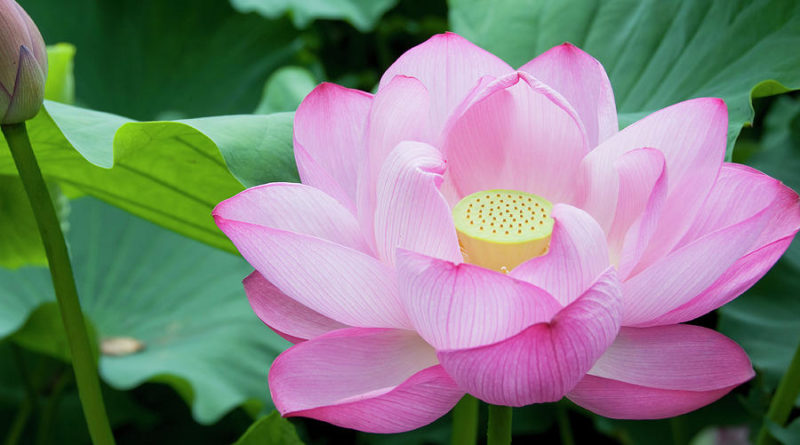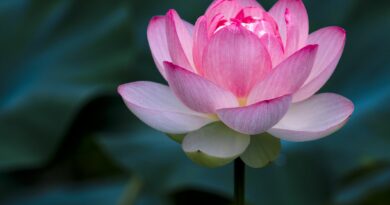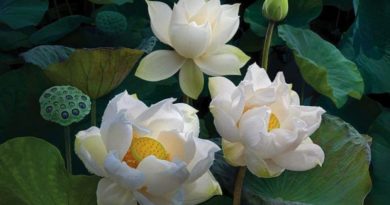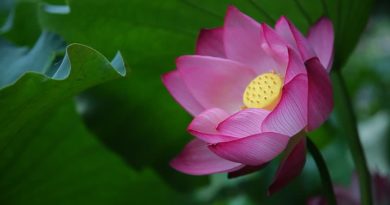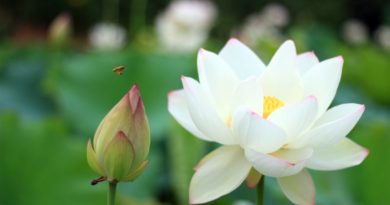Buddhist Dictionary -o-
BUDDHIST DICTIONARY
-O-
obduracies,the 5 mental: ceto-khila (q.v.).
obhāsa: ‘effulgence of light’, aura, appearing at times during deep insight (vipassanā), may become a ‘defilement of insight’ (vipassanūpakkilesa); cf. visuddhi, V.
object:ārammaṇa (q.v.); as condition s. paccaya (2).
obstacles, the 10 o. of meditation: palibodha (q.v.); for the 5 mental obstacles, or hindrances, s. nīvaraṇa.
odāta-kasiṇa: ‘white-kasiṇa-exercise’; s. kasiṇa.
ogha: ‘floods’, is a name for the 4 cankers (āsava, q.v.).
ojā: ‘nutriment’ (synonym of āhāra, q.v.), is one of those 8 minimal constituent parts, or qualities, of all corporeality, to wit: the solid, liquid, heat, motion; colour, odour, taste and nutriment. This is the ‘octad with nutriment as the eighth (factor)’ (ojatthamaka-kalāpa), also called the ‘pure eightfold unit’ (suddhaṭṭhaka-kalāpa), being the most primitive material combination. For further details, s. rūpa-kalāpa.
okkanti: ‘conception’, lit. ‘descent’, designates the appearance of the embryo in the mother’s womb, i.e. the beginning of the birth process (jāti, q.v.). “Through the concurrence of 3 circumstances arises the embryo. When father and mother have united, … and the mother has her time, and the ‘genius’ (metaphorically for the kamma energy) is ready; under these 3 circumstances does the embryo appear” (M. 38).
old age: jarā (q.v.), is one of the 3 divine messengers (s. devadūta).
olfactory organ: s. āyatana.
omāna: ‘inferiority-conceit’; s. māna.
once-eater, the practice of the: s. dhutaṅga.
one-group existence: eka-vokāra-bhava (q.v.).
one-pointedness of mind (cittekaggatā): a name for mental concentration (samādhi, q.v.).
opapātika: lit. ‘accidental’ (from upapāta, accident; not from upapatti, as PTS Dict. has); ‘spontaneously born’, i.e. born without the instrumentality of parents. This applies to all heavenly and infernal beings. “After the disappearing of the 5 lower fetters (saṃyojana, q.v.), he (the Anāgāmi) appears in a spiritual world (opapātika) ….”
open air, practice of living in the: s. dhutaṅga.
opposite: ‘overcoming by the opposite,’ s. pahāna.
orambhāgiya-saṃyojana: the ‘lower fetters’, i.e. the first 5 fetters that bind to lower existence; s. saṃyojana.
origination, dependent: paṭiccasamuppāda (q.v.).
origination of corporeality: s. samuṭṭhāna.
ottappa : ‘moral dread’; s. hiri–ottappa .
overcoming, the 5 kinds of: s. pahāna. – Full understanding consisting in o.; s. pariññā – the effort to overcome, s. padhāna. – Overcoming doubt, the purification by; s. visuddhi, IV.

